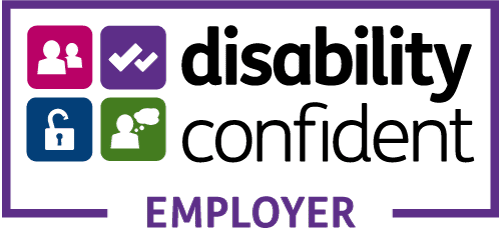
Maintaining your brand reputation during your recruitment process
Maintaining your brand reputation during your recruitment process
7 months ago by Jack Keeling
Do you handle your own recruitment internally? If so, how are you ensuring you protect your employer and consumer brand throughout the process?
You’ve no doubt seen the unprecedented number of applications on LinkedIn, with job adverts racking up 150-200+ applicants within the first 24-48 hours of publishing. However, with great numbers of applicants, comes great responsibility! A lot of business leaders are not witness to the effect recruitment can have on their brand's reputation.
Let’s talk through a very real example; let’s say you’ve received 250 applicants for your VP of marketing role; The chances are that you’ll have half a dozen applicants that could be well suited to the role and, providing you can identify them quickly enough to deliver a positive experience, one of those candidates will likely go on to be offered the position, and accept.
Great news, but that’s 249 applicants that didn’t get the job. So, when will you tell them you will not be progressing their application? And how? What about other roles that they might be suited for in the future? Do you have the capacity, tools, and processes in place to ensure they have a positive candidate experience, regardless of the outcome of their application?
Getting this process wrong or leaving candidates hanging can be detrimental and leave candidates with a sour taste in their mouths about your brand or company. If candidates are not managed quickly and professionally, they will talk. So, what can you do to ensure your business delivers a positive candidate experience and continues to attract and retain the best talent on the market?
Technology – Ask yourself whether the tech you have can handle large numbers of applications. Is it compliant? Does it enable you to respond accordingly to large numbers of applicants? If not, you might want to consider investing in an ATS (applicant tracking system). An ATS is great for automating certain elements of a recruitment process and can pre-screen candidates for you, automate the rejection process and even match them to other vacancies you might have in the business. An ATS can be a useful tool, but it is exactly that, a tool, and you’ll still need a competent team to deliver a personal and positive experience.
Interview Process – As a candidate, there is nothing more frustrating than an interview process that is long, has several stages and lacks communication/feedback throughout. Now, more than ever, interviews are a two-way street. Not only are you assessing the candidate's experience, skills, and cultural suitability, but the candidate is building an impression on you and your company, based on their experience from the moment they submit their application, right through to offer, placement and start date. Your interview process should be transparent, efficient, and professional, with a clear timeline and communication provided throughout. Have you trained your hiring managers on how they talk about your company? A great manager doesn’t necessarily have the skills to interview effectively. Many great candidates will drop out of the process due to a bad experience during the interview process. It’s very unlikely they would apply again in the future, and they would most certainly tell their friends and family about their negative experience.
We talk in more detail about the ideal interview process in our blog ‘How to be an Employer of Choice in a Candidate driven-market’
Capacity – Take an honest look at your capacity internally. One individual hiring manager, talent manager, or internal recruiter just isn’t going to have the capacity to manage and communicate effectively with substantial numbers of applicants, especially if they’re managing multiple roles and processes. If your department managers are doing their own recruitment, it’s unrealistic to think that they could deliver an excellent candidate experience whilst doing their day job, so bear that in mind.
If you don’t have the capacity internally, then it may be time to consider looking for an external partner. Whether that is us or someone else, a specialist recruitment partner will not only have the capacity, but the reach, expertise, processes, and ability to ensure a positive candidate experience for every applicant, which in turn, not only protects your employer brand but improves it.
If you would like to discuss your future recruitment and how we can help you establish a positive and effective recruitment experience for your candidates, then please get in touch to arrange a chat with one of our expert consultants.
Continue reading
-

Typical freelance rates
-

Choosing the right approach to recruitment
-

Leveraging a Salary Survey for Strategic Recruitment Planning
-

Salary Survey 2024 – FREE DOWNLOAD
-

How to set yourself up as a Self-Employed Contractor?
-

Ineffective Recruitment – It’s a wrap!
-

Ineffective Recruitment - Part 6
-

5 reasons to avoid a multi-recruiter strategy
-

Ineffective Recruitment - Part 5
-

Ineffective Recruitment - Part 4
-

Ineffective Recruitment - Part 3
-

Ineffective Recruitment - Part 2
-

Ineffective Recruitment
-

Need to hire in confidence?
-

Be the best choice for your ideal candidate
-

Qualify Your Recruiter - FREE DOWNLOAD
-

Jack heads for the House of Lords
-

Maintaining your brand reputation during your recruitment process
-

Employee loyalty - from one way to two way, or the highway!
-

We are patrons of the GBTCC
-

How to protect your brand when recruiting directly
-

Introducing our new Watchlist - for Agencies
-

introducing our new Watchlist - for Companies
-

Expanding Horizons: Beyond the Book brings its Marketing recruitment services to the USA
-
.jpg)
Is it time to grow your marketing team?
-

Trust us to care and deliver
-

Complimentary Salary Benchmarking - 2023
-

A little update for candidates and freelancers
-

Our latest investment in recruitment excellence
-

Will you go out with me?
-

How best to recruit in a hurry
-

Midlands Annual Design Survey 2022
-

FAQ - About Beyond The Book, for businesses
-

How do you go about hiring a senior digital professional, agency side?
-

Where do you go if you are looking to bring your first Head of Digital into the team, in-house?
-

With Halloween approaching, lets discuss ‘ghosting’
-

How has hiring a Freelancer or Contractor changed post Covid?
-

Our Salary Survey 2022 - FREE DOWNLOAD
-

Update & insights in the current market 2022
-

The real reason your recruiter is asking you to work exclusively
-

Recruitment activity needed in the current marketplace
-

Where do you go when you need multiple roles filled, and quickly!?
-

Recruiting direct? Job copy advice in the current climate - FREE DOWNLOAD
-

Say Hello to Ella, Georgie and Mallory!
-

Meet our marketing recruitment team
-

Is a career in freelance Account Management for you?
-

Fundamentals for a creative CV
-

Is your freelance roster running dry?
-

A Case In Point – Helping my client look for a specialist Digital Marketing Executive
-

Client case study - why relationships matter
-

How to improve your diversity
-

How to prepare & present your freelance portfolio
-
.jpg)
People Need Not Apply!
-

Why are people who choose Agency life loving it more than ever before?
-

How to create a killer content plan
-

Want to get better at b2b marketing?
-

Update & insights in the current climate 2021
-

A case in point….
-

How we delighted this HR Manager with a seamless recruitment process
-

10 ways a quality, specialist recruiter can add significant value to your job search
-

What if... your recruitment planning isn’t aligned to the current climate?
-

Agency PR and Marketing Case Study
-

What is a career in recruitment really like?
-

Hybrid working: What does that even mean?
-

Where did those two weeks go?
-

Salary is the only way to be competitive?
-

Advertainment - Driving trackable results
-

Our Salary Survey 2021
-
The Power of Employee Experience – Q&A with Robert Pender
-

LinkedIn Top Tips for Jobseekers
-

IR35 Cycle – IR35 support resources for your business
-

Should your strategy include email marketing?
-

Case Study – Content Manager
-

Q&A with Jessie and Michelle
-

BTB – Recordings of our IR35 webinars
-

How is the freelance market shaping up in 2021?
-

Supporting Juniors entering the creative industry
-

Flexible working is the new 9-5!
-

Is your company exempt from the IR35 reform?
-

BTB & Brookson One IR35 Webinar for Businesses
-

BTB & Brookson One IR35 Webinar for Freelancers
-

A Social Media (and a bit of PR!) case study
-

How freelance works for clients
-

Are you missing your ideal candidate?
-

IR35 Off-Payroll changes - FREE DOWNLOAD
-

The very real cost of less than perfect recruitment
-

Our commitment to Businesses in 2021
-

We have the market covered
-

We have a winner!
-

Information update from us to you
-

If 2020 has taught us one thing...
-

Happy New Year!
-

Recent Marketing and Content case study
-

Recent PR case study
-

Recent Digital Marketing case study
-

Recent Marketing case study
-

Do you need a PR person?
-

Recent creative case study
-

An update for businesses
-

We’re finalists!
-

Creative and Design
Client Services and DeliveryDigital Marketing
Marketing and Brand
PR and Communications
Digital Specialists
Freelance -
13 The Courtyard
Timothy's Bridge Road
Stratford-upon-Avon
Warwickshire
CV37 9NP
01789 451510
info@btbpeople.co.uk
View map -
Stay connected to
Beyond The Book
Beyond The Book is a Disability Confident Employer and Inclusive Recruiter. If you experience any barrier in navigating, reading or processing the content of our website, or applying for any advertised positions, please contact Sally Moist or Adam Smith (or ask someone on your behalf to). Sally or Adam will reach out to you promptly (or your named representative), listen to your needs and identify ways to help you access our information and service.
© Beyond The Book Ltd. | Registered in England no. 06856820 | Vat no. 102143971 | Privacy Policy
